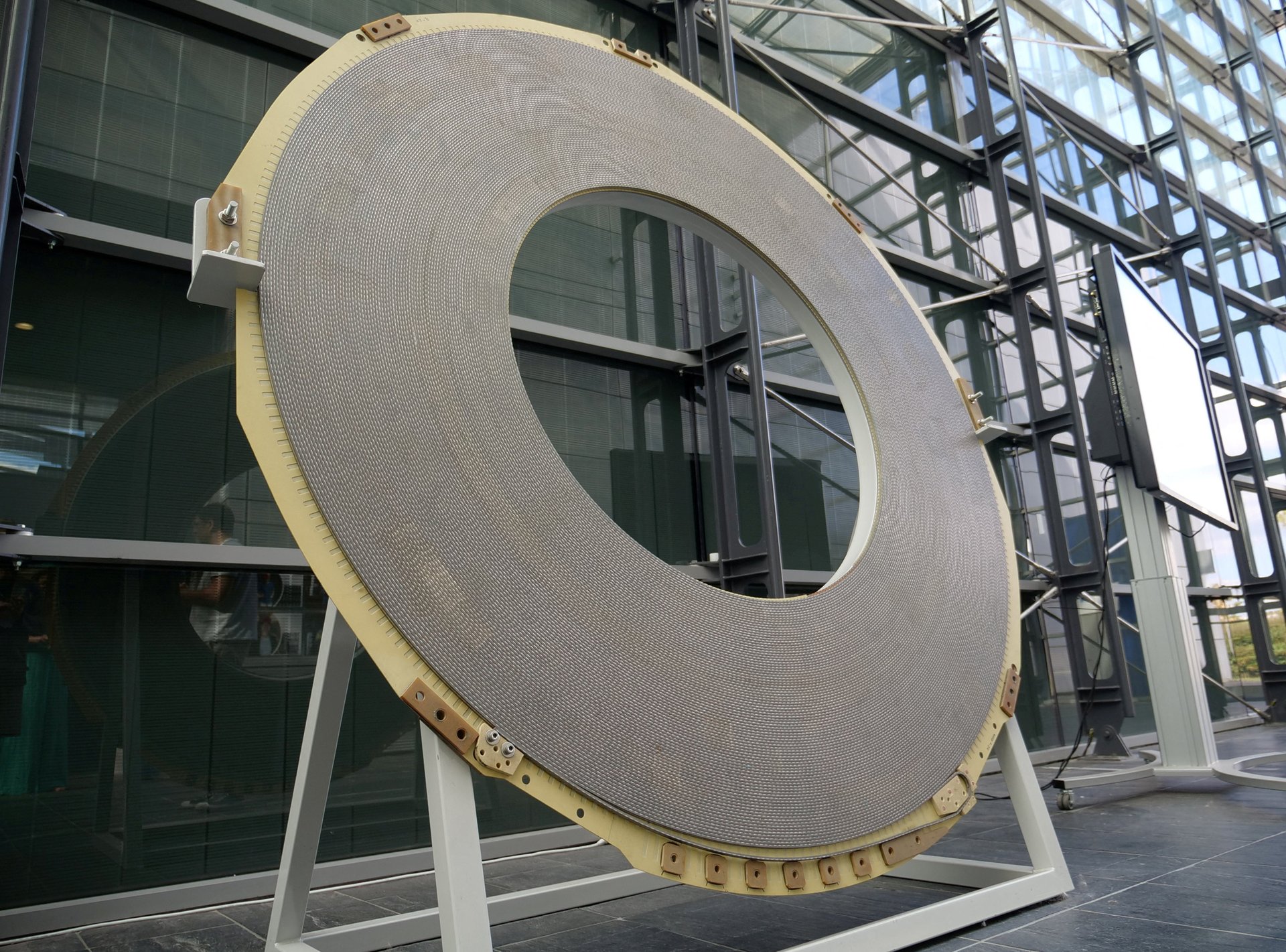🌏 The superconductor that wasn’t
Plus: Stop hogging the frame, Earth.

Good morning, Quartz readers!
Suggested Reading
Here’s what you need to know
It turns out that LK-99 is most likely a funky magnet with potential. Dreams of a groundbreaking superconductor have been corroded, but not completely dashed.
Related Content
The Biden administration is restricting Americans’ investments in China. Firms that make advanced semiconductors and quantum computers will be part of the ban, set to take effect next year.
Also in China: Deflation. Consumer prices in the world’s second largest economy have fallen for the first time in two years as demand weakens.
The “Tesla of electric buses” went bankrupt. Stock of California-based Proterra has been in a freefall this year, but it’s not like other budding EV companies are doing dandy.
And WeWork is definitely not doing dandy. In fact, the very survival of the co-working space company is up in the air, while its stock is, well, at rock bottom.
Satellites are getting interested in more than just Earth

The sensors on most satellites are preoccupied with the same thing: our terrestrial home. It makes sense—Earth is where everybody is, and therefore it’s where all the money is.
But as the space beyond our planet becomes more economically important, there’s a lot more interest in pointing those sensors away from us and at orbiting spacecraft, debris, potentially dangerous asteroids, and even the Moon.
If you’ve noticed that you rarely see a picture of a spacecraft in orbit, well, that’s about to change.
One fake number: 10,000
The number of daily steps that was once universally seen as the benchmark for healthy living
A Japanese study earlier this year put the goal at 5,000 to 7,000. A new meta analysis of 17 other studies around the world says that number is more like 4,000. That’s not to say you should reduce the amount of movement in your day, but it is an example of how sometimes facts and guidelines arrive into the public consciousness through, essentially, marketing.
The Uber alternative is pulling an Uber
Lyft is leaving surge pricing in the dust, in no small part “because riders hate it with a fiery passion,” the ridesharing company’s CEO David Risher said. Touché.
While the change may be heralded by app users, it’s not great news for drivers, who will inevitably keep on earning less in the process. A tense driver dynamic is something Lyft’s competitor Uber knows a thing or two about, and both companies are now facing a potentially unsustainable driver supply in their quest for profit.
🎤 But we’re still pleasantly surprised that Taylor Swift gave six-figure bonuses to her tour workers.
Surprising discoveries
An increase in temperature correlates directly with increases in snakebites. Yet another reason to support climate action.
Oh, and increased air pollution correlates with increased antibiotic resistance in humans. A study found the link between the two issues has become stronger on every continent.
Game card companies need to be careful making their next move. Producing collectibles to drive up prices tends to backfire—and at the very least makes gaming pretty unfun.
2010s fashion is back. It felt like Y2K’s fashion comeback was only yesterday!
And while we’re changing fashion trends… The white ribbed tank top of a formerly very disturbing name is now called “the wife pleaser.”
Our best wishes for a productive day. Send any news, comments, snake-proof shoes, and skinny jeans to [email protected]. Reader support makes Quartz available to all—become a member. Today’s Daily Brief was brought to you by Morgan Haefner and Susan Howson.